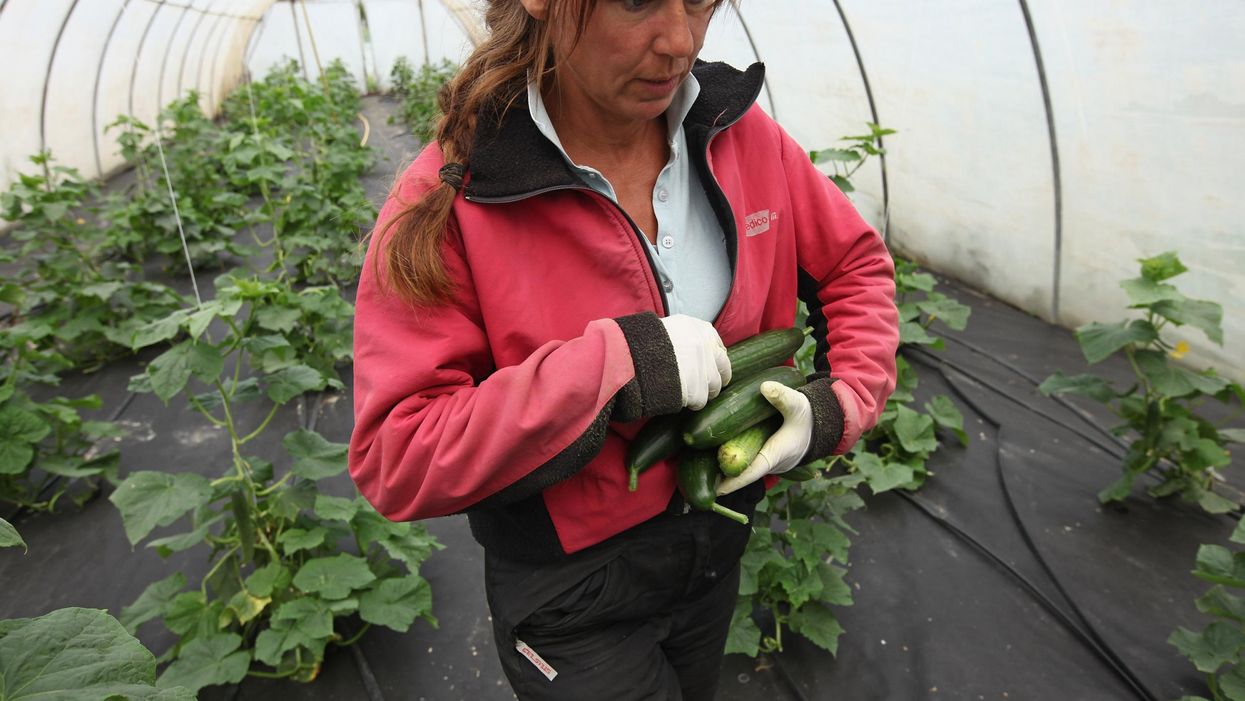News
Joe Vesey-Byrne
Dec 28, 2016

Picture:
Sean Gallup/Getty Images
Organic, green, recycling, carbon neutral, fresh, local. These are all just words we see appended to foods that make us think "Ah good, this will be a clear conscience purchase".
Think again.
According to the New Scientist, ditching 'organic' food is one way to save the planet.
It's not always as wholesome as you might think.
The article busts several myths:
'Buying locally reduces carbon footprint'
While you might assume that buying food from a local grower has a smaller carbon footprint than flying across the world on a plane, you're wrong.
Yes, a cargo plane produces greenhouses gases, but often a worse culprit is a small heated greenhouse, like the kind used to grow food on smaller farms found locally.
Nor are organic and "locally" grown food shops always as local as you might think.
A 2009 study of one of the UK's largest organic food distributors was carried out by scientists from the University of Exeter.
It found that a round trip in a car journey of more than 6.7 km will emit more carbon than the usual system of cold storage, packing, transport to a regional hub and final transport to a customer’s doorstep used by large-scale vegetable box suppliers.
'Organic farms are better for biodiversity'
People take "organic" to mean "pesticide free", and therefore synonymous with being critter-friendly.
Due to their lack of chemical engineering and pesticides to repel crop destroyers, organic farms need larger tracks of land to keep the yields up.
Proponents of organic food say this creates more biodiversity due to the larger farms.
However in places such as the tropics, the oversized farms can encroach upon rainforests, and even lead to their chopping down in order to make more room.
While there is a potential for this problem, the real extent of it should not be overplayed.
A 2012 study by the University of Oxford said organic farms had 30 per cent higher species richness than conventional farms.
The meta-analysis of 71 studies by Oxford stated that only a minority of organic farms (16 per cent) had a negative impact on species richness.
'Organic food is healthier for you'
Another 2012 study published in Annals of Internal Medicine found that the health benefits of organic food were indistinguishable from those of non-organic foods.
The work compared 327 distinct studies of organic foods.
In February 2016 a similar study of organic and conventionally farmed food found multiple instances where the organic food contained fattier components.
The research by Professor Chris Seal found that organic milk contained 50 per cent more omega-3 fatty acids than ordinarily farmed products.
For context, ordinary full fat milk is only four per cent fat, and semi skimmed just two per cent.
The change resulted from the type of grass fed to milk producing cows - organic v non-organic.
The problem of labelling
The New Scientist bemoans the rejection of genetically modified (GM) foods as a type of "organic" food.
Regulators of food labels and the movement for climate labelling are against including GM crops in the "organic" classification.
The article argues that the technology used to create GM food has the best potential for lowering farm emissions.
In addition, the genetic differences between GM and the food currently classified as "organic" are minute.
A broader problem with disagreements over "climate labelling" adds to the problem.
Tesco attempted to measure the carbon foot print of food on labels in 2007, but has since discontinued the practice.
A system that mimicked the current GDA percentages measurement is the New Scientist's suggested solution.
More: 9 practical things you can do to save the planet in 2017
More: These photos reveal the side of weight loss no one talks about
Top 100
The Conversation (0)













